Autism Treatment Center Business Plan, Marketing Plan, How To Guide, and Funding Directory
The Autism Treatment Center Business Plan and Business Development toolkit features 18 different documents that you can use for capital raising or general business planning purposes. Our product line also features comprehensive information regarding to how to start an Autism Treatment Center business. All business planning packages come with easy-to-use instructions so that you can reduce the time needed to create a professional business plan and presentation.
Your Business Planning Package will be immediately emailed to you after you make your purchase.
Product Specifications (please see images below):
- Bank/Investor Ready!
- Complete Industry Research
- 3 Year Excel Financial Model
- Business Plan (26 to 30 pages)
- Loan Amortization and ROI Tools
- Three SWOT Analysis Templates
- Easy to Use Instructions
- All Documents Delivered in Word, Excel, and PDF Format
- Meets SBA Requirements
A video showcasing the Autism Treatment Center Business Plan:
Business Plan
1.0 Executive Summary
The purpose of this business plan is to raise and examine the allocation of $155,000 for the continued development of an ABA therapy business that specializes in the treatment of autism. Autism Treatment Service LLC (“the Company”) is a Princeton, New Jersey based business founded by Dr. Jane Smith. The Company will hire a number of associates that will allow the business to provide comprehensive therapies to both children and adults in this market.
Services
As stated above, the primary service rendered by Autism Treatment Service is providing ongoing assistance to people with autism in the Princeton and Mercer County area market. The busniess will focus heavily on providing life skills improvement, coping skills, behavioral analysis, and cognitive behavior therapy.
The Company will generate its revenue directly from patients while concurrently receiving reimbursement from private insurance. To a more limited extent, the business will receive fees from publicly funded healthcare systems.
Chapter three of this document will further outline the operations of the business.
The Financing
Dr. Jane Smith is seeking $155,000, via a working capital line of credit, for the development and expansion of Autism Treatment Service LLC. This business plan indicates that the business will receive a 7-year revolving line of credit which carries a 6% interest rate. This funding will be used to:
• Establish the Company’s operations in Princeton
• Expansive marketing campaigns for the target market
• General working capital
Moving forward, this revolving credit facility may be expanded as the billable revenues of the business increases. In the event that Management establishes a second location, a business loan may be acquired to launch these operations.
Expansion Plan
Over the next five years, the Company will expand the number of referrals that it receives from area schools and social workers. There are a number of individuals that have autism and are neurodivergent in this market.
Revenue Forecasts
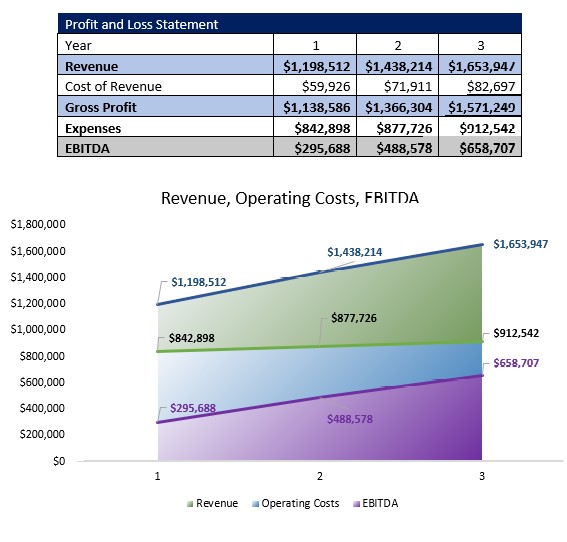
2.0 The Financing and Company Summary
2.1 Funds Required
A $155,000 revolving credit facility is sought for the continued development and expansion of Autism Treatment Service.
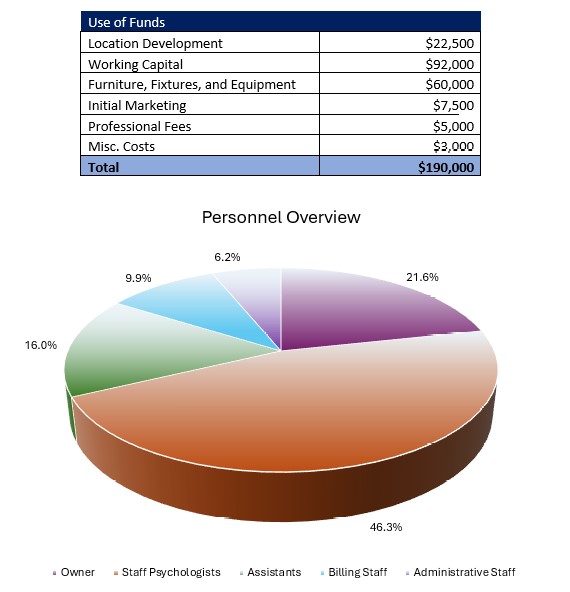
2.2 Corporate Structure
Autism Treatment Service LLC is registered as a limited liability company in the State of New Jersey.
2.3 Management Equity
Dr. Jane Smith retains a 100% ownership interest in the business.
2.4 Exit Strategies
If it is financially prudent to do so, Dr. Smith will work with her associates in order to transition the practice to their ownership. The sale of the business is not expected to occur for a substantial period of time. The payout would be done over a period of three to five years. Generally, these types of businesses can be sold for three to four times their previous year’s net profit.
3.0 Operations
The business will generate substantial revenue by rending both applied behavior analysis as well as cognitive therapies for both adults and children with autism spectrum disorders. Autism Treatment Service is committed to providing a wide range of social and personal life skill development that will allow these individuals to lead independent lives. On a per hour basis, the Company expects fees of $175.
A substantial component of the Company’s operations will be to provide a place where individuals can interact and create new friendships. This will be a major differentiating factor for Autism Treatment Service.
In regards to staffing, the business will directly employ psychologists and behavioral therapists to render services onsite. From time to time, the Company may retain independent contractors that have specialized expertise as it relates to the treatment of autism spectrum disorders.
4.0 Market Analysis
4.1 Economic Forecast
This chapter of the document will focus on the economy, the autism spectrum treatment industry, and competitive issues that Autism Treatment Service will need to address.
At this time, the economy within the United States is strong. Unemployment rates remain near historical lows and interest rates are declining. There is no indication that there will be an economic recession in the coming months.
It should be noted that any challenging economic climate will not impact profitability. The demand for ASD treatment services remains substantial in any economic climate. Most importantly, the Company operates in the wealthy and population dense market of Princeton.
4.2 Industry Analysis
Within the United States, there are approximately 20,000 companies that provide ABA therapy and cognitive therapies for people that have autism spectrum disorders. Aggregately, these practices generate $11.2 billion per annum.
The industry is poised for substantial growth over the next five years as autism awareness continues to expand. Issues with neurodivergent people are becoming far more well established. The industry is expected to grow at a 6% CARG.
4.3 Client Profile
The demographics that Autism Treatment Service will target are wide ranging. ASD can affect any person regardless of their income. Generally, the business will implement the following parameters when executing its direct outreach and marketing programs:
• Lives within 10 miles of the Autism Treatment Service location
• Median household income ranging from $75,000 to $200,000+
• Has private insurance or is enrolled in Medicaid
4.4 Competition
Autism Treatment Service will face a moderate amount of competition as it progresses through its operations. Given the wealth and diversity of the Princeton market area, there are other entities that operate in a similar capacity to that of the business. As discussed earlier, the primary differentiating factor that the Company will maintain is its event hosting for people with ASD. This will be a major draw to the facility.
5.0 Marketing Plan
Management will use multiple marketing strategies in order to create substantial awareness for Autism Treatment Service in the Princeton market. Most importantly, the Company will conduct direct outreach with schools and third-party treatment centers that will provide referrals.
5.1 Objectives
• Leverage social media to create substantial regional awareness for Autism Treatment Service and its operations.
• Host open houses that showcase the operations of the business.
• Maintain referral relationships with numerous entities.
5.2 Marketing Strategies
Most importantly, Autism Treatment Service will be positioned as a community minded business that will provide its services affordably to the Princeton and Mercer County general public. The business will host several open houses per month specific for the needs of both children and adults with ASD. These open houses are expected to produce highly predictable streams of new clients on a monthly basis.
The business will maintain an expansive online presence that discusses the immense breadth of applied behavior analysis therapies, skill enhancements, and interactive programs offered at the facilities. The Company will have a number of professionally created videos that will showcase the location and its service offerings. Over the next five months, the Company will use SEO techniques so that when searches for ASD treatment centers are conducted for the Princeton market, the Company’s online platform will show up.
For social media, the Company will focus on using Facebook, Instagram, and LinkedIn. On LinkedIn, the busniess will establish ongoing referral relationships with educational and mental health professionals within the Mercer County market. On Facebook and Instagram, the busniess will use targeted advertisements among people that have recently searched for ASD treatment centers.
To a more modest extent, the Company will engage in print advertising among lifestyle publications that circulate within Princeton and Mercer County. This will make up 10% of the Company’s aggregate marketing budget.
6.0 Organizational Plan
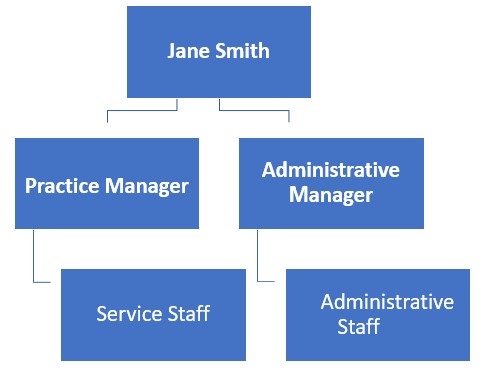
6.1 Personnel Budget
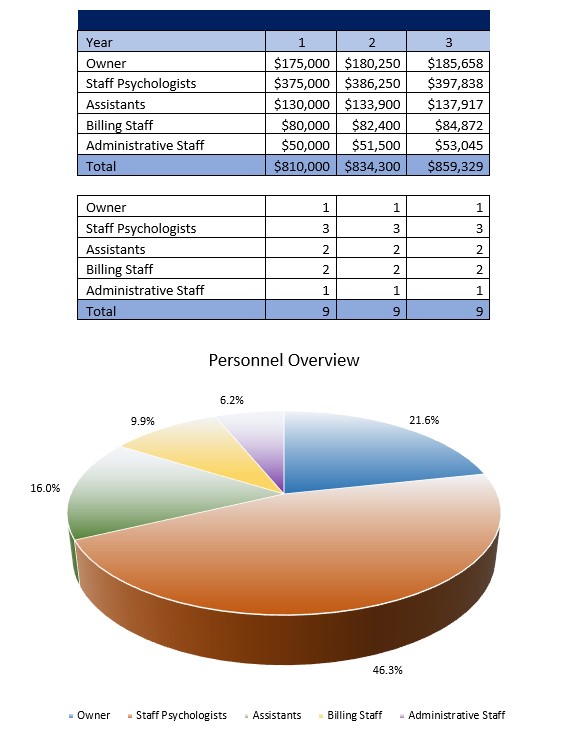
7.0 Financial Plan
7.1 Assumptions
• The business will have an 8% compounded annual growth rate.
• Autism Treatment Service LLC will acquire $155,000 via a revolving credit facility.
• The Founder will provide $35,000 towards the venture.
7.2 Revenue and Profit Sensitivity
The Company’s revenues are not sensitive to challenging economic climates. Families that have people with ASD will continue to seek out therapists that can help their family members lead more productive and independent lives. Autism Treatment Service will generate exceptionally high gross margins from its operations that will ensure that the busniess can remain profitable while servicing its underlying financial obligations.
7.3 Capital Sources

7.4 Profit and Loss Statement
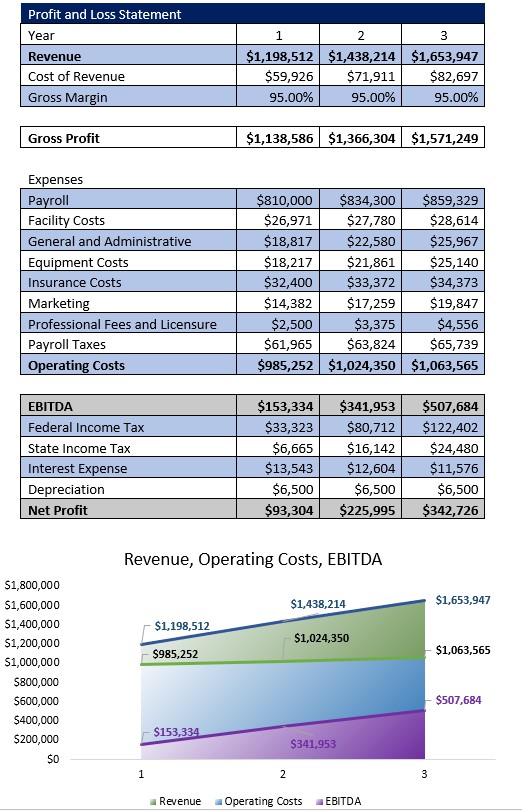
7.5 Cash Flow Analysis
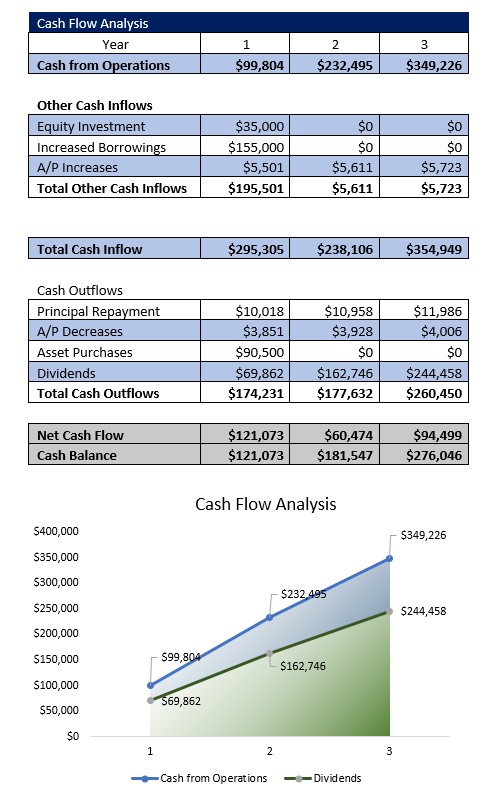
7.6 Balance Sheet
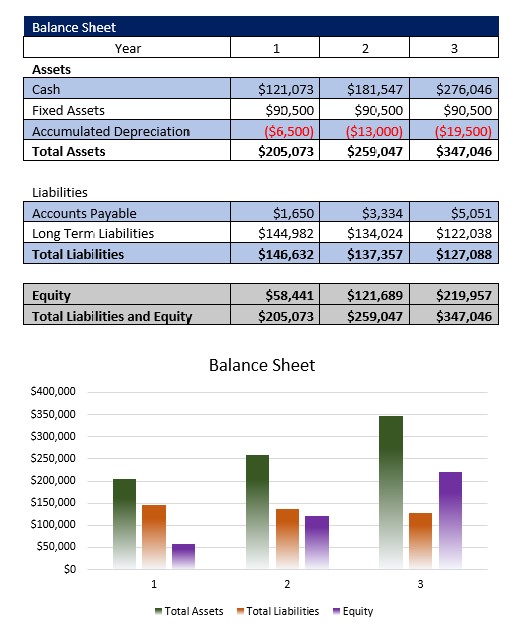
7.7 Breakeven Analysis
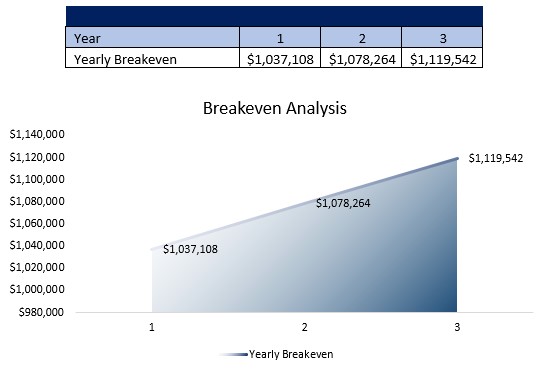
7.8 Business Ratios
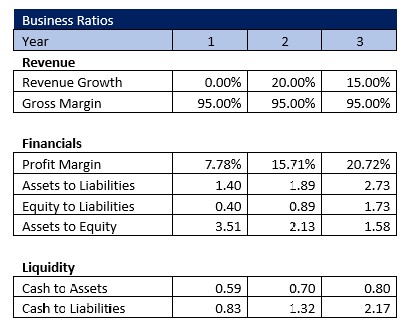
General Overview
People with autism have unique needs as relates to how they interact with other people and function the world. As such, autism treatment centers have become very popular businesses over the past 10 years as people have taken a much more compassionate view to working with people that are on the autism spectrum. These businesses are able to remain profitable in any economic climate given that they render important physical and mental health services to these people. Additionally, families of people with autism are very willing to have the these individuals get the assistance they need so they can thrive in society. The barriers to entry for a new autism treatment center are very high given that it is usually a medical professional or mental health professional that seeks to develop these businesses. The licensure required to operate one of these facilities varies from state to state and as such it is important that an entrepreneur that is looking to start one of these facilities consult with an attorney to determine which licenses are needed in order to render the services to the general public.
If an entrepreneur is looking to raise capital to start their new autism treatment center then it is very important that they have a business plan. This document should showcase the market, approximate percentage of people with autism, median household income, and the competition that these businesses will face on an ongoing basis. The business plan should also include information relating to the anticipated financial results of the business. Within most business plans, this includes a three-year profit and loss statement, cash flow analysis, balance sheet, breakeven analysis, and business ratios page that can be reviewed by a potential funding source to make an investment or lending decision. Most investors and financial institutions are happy to provide the capital needed to start autism treatment center given the very high demand for these services as well as the high gross margins that are generated from services rendered. One of the drawbacks to these businesses is that they do have very high operating costs given that health care and mental health professionals need to be hired to provide treatment to people with autism. The startup costs for a new autism treatment center generally range from anywhere from $100,000 to $500,000 depending on whether or not it is going to be a standalone facility, and whether or not the business is going to acquire real estate. One of the other things that used to be discussed within the business plan is whether the company will be able to receive insurance reimbursements from both private insurance companies as well as publicly funded healthcare systems. Generally, if mental health services are being provided on-site in conjunction with general care – and these businesses are able to qualify for receiving payment from insurance companies.
As it relates to the autism treatment center marketing plan, it is very important that an individual that is going to own and operate one of these facilities develop ongoing relationships with other mental health professionals, pediatricians, schools, and other entities in which people with autism use on an ongoing basis. It is of the utmost importance that referrals are generated in order to develop the customer base. Additionally, and as with any other business – it is important to have an online presence. The website for the autism treatment center should feature information about the business, practitioners, hours of operation, whether or not insurance is accepted, and other relevant information pertaining to autism and how to help people that have this disorder.
Frequently done in conjunction with the marketing plan and business plan, is the autism treatment center SWOT analysis. This analysis focuses on the strengths, weaknesses, opportunities, and threats faced by most companies. As it relates to strengths, and as discussed above – the demand for autism treatment centers has exploded over the past 5 to 10 years. Additionally, these companies are able to generate significant fees by assisting people with autism. For weaknesses, this is still a new industry and are currently a number of issues that need to be addressed on an ongoing basis especially as it pertains to treating people that are on the autism spectrum. As it relates to opportunities, many owner operators of these businesses seek to develop ongoing relationships with referring physicians while concurrently establishing additional locations. For threats, he owned changes to Medicare, Medicaid, and private insurance reimbursement policies – there are very few ongoing threats outside competitive issues that would impact the way that an autism treatment center conducts business.
